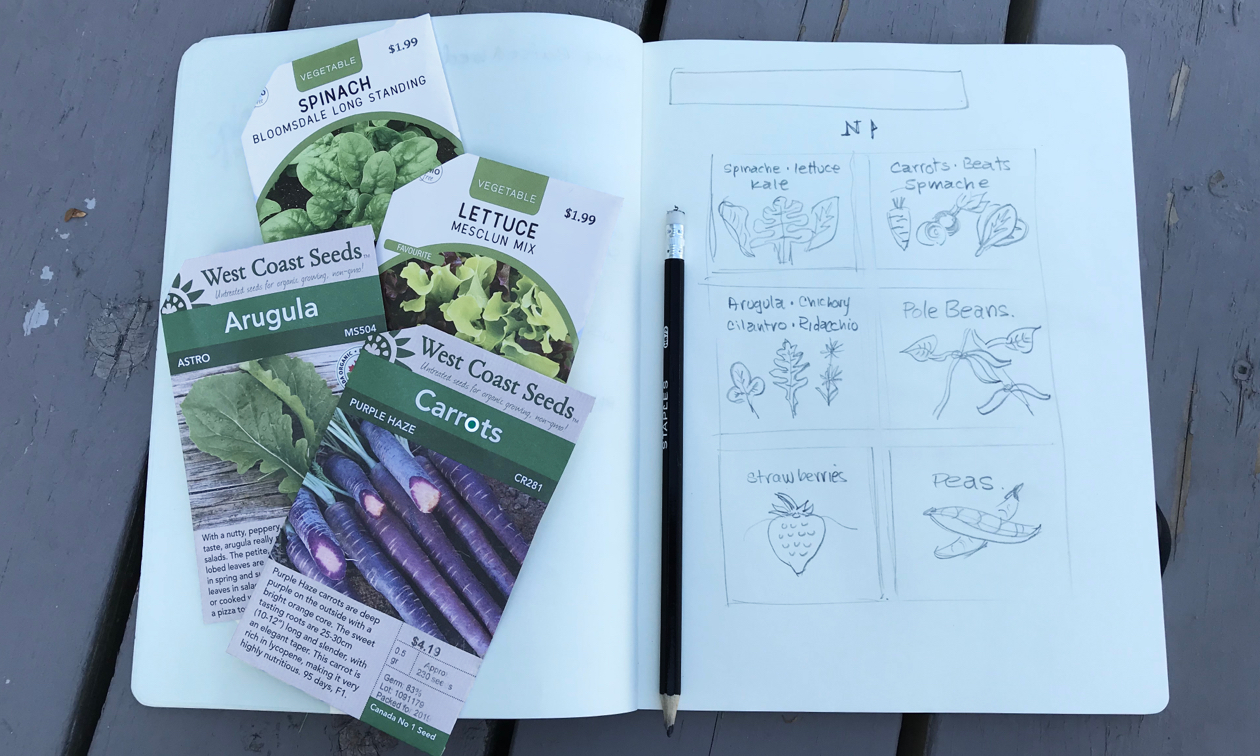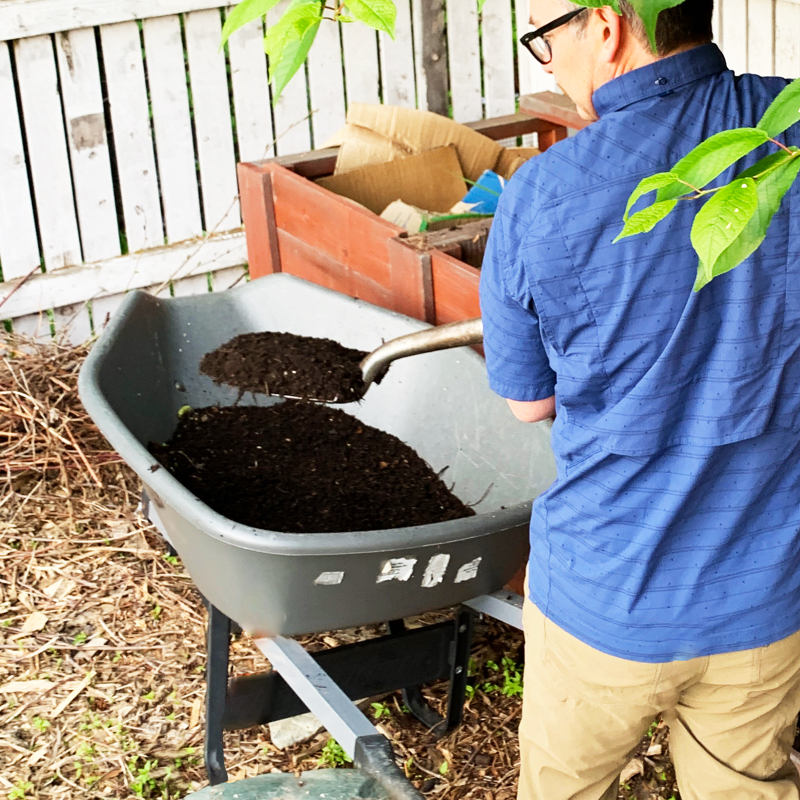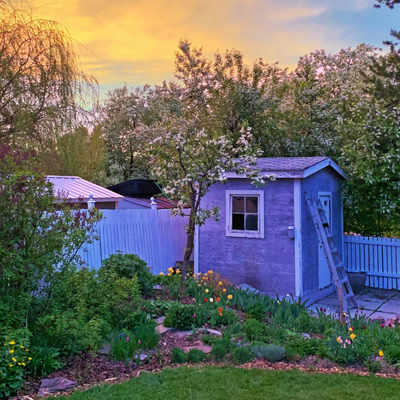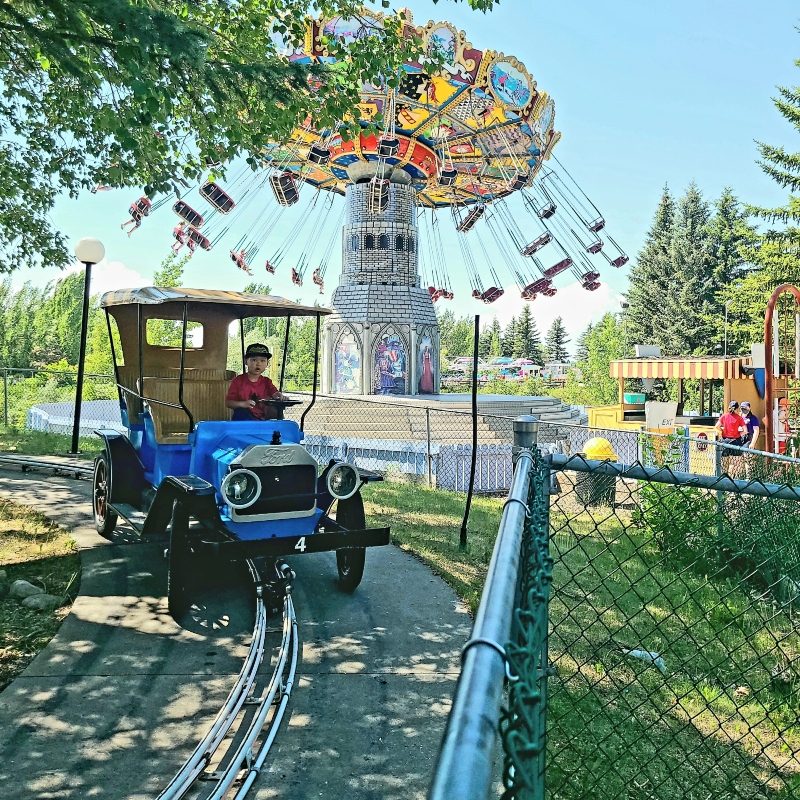Gardening 101: How to choose the best seeds for your garden
Everything you need to know to select the best seeds for your vegetable garden this year
by Kerry Shellborn, aka the Garden Geek
—

“We should get some seeds to plant this weekend,” my wife would say while shopping together in a big box store on a warm spring day.
“Sure, what should we get?” I would respond.
We then would both stare at a colourful display of seed packages with a seemingly endless amount of different varieties from a plethora of seed companies. Without much thought, we would usually grab whichever package had the best photo from a recognizable brand. After all, a seed is just a seed.
That’s how I used to choose seeds. Then, I did a little research starting with understanding the names and descriptions on the seed packages, and that changed how I purchase seeds.
Perhaps, like me, you have picked up a seed package and pondered questions like:
- What seed companies should I buy from, and does it even matter?
- What is the difference between the different kinds of seeds?
- What varieties of tomatoes should I choose?
- Should I get open-pollinated, non-GMO, heirloom, organic or hybrid seeds?
- Should I buy zucchini seeds even if I don’t like zucchini?
What seeds should I buy this year?
That’s easy, buy seeds for vegetables that you enjoy eating.
But don’t be afraid to experiment. Did you know that you can grow purple carrots, yellow tomatoes and rainbow chard? When we grow our own food, we aren’t restricted to what sells in a supermarket, and we can have lots of fun varieties. Every season I try to grow at least one vegetable that I’ve never tried before. Two years ago, that was arugula (my new favourite green), and last year it was broad beans (which I probably won’t try again) and this year, I will try ground cherries.
Garden Geek recommendation: The key to vegetable gardens is to plan before you go seed shopping. One of my go-to-seed-planning websites is West Coast Seeds. They have an easy-to-navigate website that provides a wealth of information on each variety of seed they sell.

What seed companies should I buy from, and does it even matter?
The best seed companies to buy from are small operations that harvest seeds from plants grown in your climate and soil type. Seeds from local companies will have a better germination rate, become healthier plants and taste better. While it may be convenient to grab a couple of seed packets from a big box store, it’s well worth your time to take an extra trip to your local garden centre. There, you can ask local gardeners to point out seed companies that specialize in traditional seed varieties that will thrive in your garden. Another alternative is to shop online directly from a local seed company.
Garden Geek Recommendation: This year, I ordered the bulk of my seeds from the Wildrose Heritage Seed Company, a small-scale seed producer that is a three-hour drive from my home. That means their open-pollinated heirloom seeds are already adapted to my growing zone. One of the great things I love about this company is that their seed packages are reusable. It’s the only seed company I know that encourages gardeners to save their seeds. I would recommend finding a similar small-scale seed company that is close to your garden.
What is the difference between the different kinds of seeds?
This is a good question and can be somewhat confusing, but it is nice to know what the different terms on seed packages mean.
First of all, there are only three types of seeds, and of those, there are only two types that you’ll find in seed packages for backyard gardeners.
The three types of seeds
Open-pollinated seeds:
 This is when plant pollination occurs by insect, bird, wind or other natural causes. Open-pollinated seeds are the only type of seed you should use if you ever want to save your own seeds. That’s because they always bear true to the parent. Open-pollinated seeds are usually identified on seed packages with a small OP in the plant description. Because OP plants can’t be patented by seed companies, they tend to be less expensive than the other two types. Purchasing open-pollinated seeds also helps with overall plant diversity, which has unfortunately shrunk considerably in the last century.
This is when plant pollination occurs by insect, bird, wind or other natural causes. Open-pollinated seeds are the only type of seed you should use if you ever want to save your own seeds. That’s because they always bear true to the parent. Open-pollinated seeds are usually identified on seed packages with a small OP in the plant description. Because OP plants can’t be patented by seed companies, they tend to be less expensive than the other two types. Purchasing open-pollinated seeds also helps with overall plant diversity, which has unfortunately shrunk considerably in the last century.
Garden Geek Recommendation: Unless I am looking for a specific trait, I try to buy open-pollinated seeds. The two things that I value most in homegrown vegetables are taste and nutrition. In my opinion, those traits are most often found in open-pollinated seeds.
Hybrid seeds:

Hybridization is deliberate cross-pollination by human intervention to create a plant that has specific desirable qualities. Hybrid plants are similar to cross-bred dogs (think Labradoodle) and are identified on seed packages with the term F1 in the plant description. F1 means the plant is the first-generation offspring of the parent varieties. The advantage of hybrid seeds is that they are predictable and uniform. They are most commonly bred for resistance to disease and a reduced number of days to harvest. The disadvantage of hybrid seeds is that they won’t hold to those traits if you want to save seeds to regrow the plants.
Garden Geek Recommendation: Buy hybrid seeds when you want a specific plant characteristic. For example, in Canada, with a short window of frost-free days, it can be beneficial to purchase hybrid tomatoes that ripen quicker.
GMO (Genetically Modified Organism) seeds:
A new trend on seed packages is to announce they are “GMO-Free.” Here’s the thing: All seed packages for home gardens are GMO-free. That’s because GMO seeds are only used in commercial applications and would be much too expensive for home gardeners to purchase.
Garden Geek Recommendation: Don’t worry about purchasing seed packages that say GMO-Free. If your seeds come in a small package, they won’t be GMO seeds.
What is the difference between heirloom, heritage and organic seeds?
Heirloom, or heritage, seeds are open-pollinated seeds that can trace their lineage for decades. (Conversely, not all open-pollinated seeds are heirlooms.) Because there is no recognized standard definition, an heirloom is more of a marketing term than a scientific designation. I like to think of heirloom seeds as plants with a history and story. Seed companies that use the heirloom and heritage monikers should back it up with a history of the plant on their website.
Unlike heirloom seeds, having a certified organic label does come with a recognized standard designation. It means that the seed companies have been certified by the Canadian Organic Standards (COS) in Canada or the United States Department of Agriculture (USDA) in the United States to have followed verified organic procedures. Because of the official certification, organic seeds will come with a higher price tag. Does that mean organic seeds are better? In a word—no. Some heirloom seeds, for example, are certified organic while others are not. It makes no difference to the seed what they are called, and they will both grow equally well.
What does it all mean?
Most gardeners, myself included, often take seeds for granted. Those small, complex packages provide a wonderful sense of accomplishment as you watch them grow from seed to harvest. Expanding your knowledge of where your seeds are sourced and then keeping track of how they grow will give you a deeper appreciation of your plants. An easy way to keep track of the seeds you plant is to take photos of the plant at various growth stages (and to keep a gardening journal). That way you’ll have a visual record of your plants' progress to refer back to the following year.
Happy seed starting.








